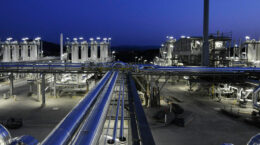Why BASF?
BASF has been driving innovation in catalyst research for more than 100 years. Our catalysts provide solutions for multiple applications and renewable feedstocks such as: Oils & Fats Hydrogenation, Fatty Alcohol & Furfuryl Alcohol Production, Fatty Amine & Fatty Nitrile Synthesis, Sugar Hydrogenation and Alcohol Dehydration. In addition to our well-established catalyst portfolio, BASF offers both a process and catalysts for the conversion of glycerin to 1,2-propanediol (MPG). Glycerin is a byproduct of the biodiesel industry, and BASF’s innovative technology now allows for the efficient conversion of glycerin into higher-value chemicals that are useful across a range of industries.
To learn more about our efforts to reduce emissions and save fossil resources, see BASF’s biomass balance page.




